The Central High School Desegregation Crisis captured international attention that was greater than any American-domestic story since Franklin Delano Roosevelt's death in 1945. Heads of government and state commented on the crisis with universal condemnation, while the foreign press showed its audiences what racism looked like in the United States, as the image of white segregationists screaming at fifteen-year-old Elizabeth Eckford turned iconic overnight. With that, on Wednesday, September 4, 1957, the Soviet Union claimed a moral victory over the United States.
Diplomats at U.S. embassies and consulates around the world—watching nervously—understood the crisis’ effect in the Cold War. The federal government made that clear. United States Secretary of State John Foster Dulles gave an interview with the Arkansas Gazette on September 11 and offered his assessment of the country's standing in the world. A Cold War warrior and sacred cow of American foreign policy, Dulles stated that the Little Rock crisis was “not helpful to the influence of the United States abroad.”
Red Headlines
The Cold War, as its core, was a campaign of hearts and minds. Two rivals that championed different ways of life wrestled over the support from governments and peoples in Africa, Asia, and Latin America. United Nations Ambassador Henry Cabot Lodge made the issue clear. “More than two-thirds of the world is non-white,” he wrote to President Dwight Eisenhower, “and the reactions of the representatives are easy to see." How could the United States appeal to peoples of color globally if African-Americans were victims of institutional racism? The Soviets recognized the opportunity, and it came at a perfect time. Just the year before, the Soviet Union suppressed the Hungarian Revolution of 1956 that resulted in international scrutiny and thousands of dead.
Newspapers in the Soviet Union, all based in Moscow, were eager to report the disaster. The Komosomolskaya Pravda, an official paper for the communist youth organization, reported on the Little Rock Nine’s first attempt to enter the school under the headline: “TROOPS ADVANCE AGAINST CHILDREN!” A picture of a National Guardsman turning away one of the Little Rock Nine ran with it along with photos of other white Americans mistreating African-American children elsewhere in the South. The Izvestia, the official newspaper for the Presidium of the Supreme Soviet, derided Arkansans as “spiritual brothers of the Ku Klux Klan,” and all Americans for their attempt to mentor the world about higher moral absolutes. American democracy was only a façade, Soviet journalists argued.
As the crisis unfolded, the wave of Soviet coverage shared across the world continued, so much that American reporters began to wonder if Faubus was a informant of Soviet intelligence services. The American magazine, Confidential, shadowed him with mocking headlines. “The Commies Trained Gov. Faubus of Arkansas.” “Is Faubus unwittingly playing the Red game?—Or deliberately aiding Soviet Propaganda?” The frustration among northern states grew as newspapers called the Little Rock crisis a “Red Propaganda Boost.”
Effect on American Foreign Policy
Cables from worried diplomats around the world blanketed desks at the State Department building at Foggy Bottom, as news in Little Rock grew worse with every development. International political figures denounced Little Rock as a site of human tragedy and a standing contradiction to the United States' pro-democratic message. Among the most blistering comments came from politicians from the Netherlands, who told American embassy workers at Amsterdam that there were only a slight difference between “Hitlerian methods and the activities of American racists.”
British media scorned United States moral leaders like Reverend Billy Graham for lecturing the British government about giving up the remainder of the old empire in Africa, Latin America, and the Middle East. According to American journalist Mike Wallace, a British reporter told him that “[Graham] better stay home and Christianize the Americans. We have been preached at enough.”
As American diplomats noted, nothing compared to the reaction of African descent everywhere. Uganda's rivaling political parties competed in sending the Eisenhower the most vehemently-worded letter .The Nigerian press concluded that the United States lost all credibility to the colonial peoples. which the Americans and the Soviet Union competed for favor.
Meanwhile, other nations sought to exploit the American disaster for leverage. France, then a colonial power in Africa, used the crisis to show the world that it was benevolent and progressive on racial matters. France hoped that it could gain the United States’ support on helping the European power to maintain its presence in Africa. South Africa labeled Little Rock as an example of the failures of integration and maintained its apartheid system for decades.
Dudziak, Mary. Cold War Civil Rights: Race and the Image of American Democracy. Princeton: Princeton University Press, 2000.
Layton, Azza. “International Pressure and the U.S. Government’s Response to Little Rock.” Arkansas Historical Quarterly, 66 (Summer 2007): 243-257.
"This Must Be Said," Izvestia. September 13, 1957.
Jared Craig serves as virtual exhibit coordinator for the UA Little Rock Center for Arkansas History and Culture. He received an MA in Public History from UA Little Rock and a BA from the University of Central Arkansas. His research interests include political movements in the American South, crime, and the media.
